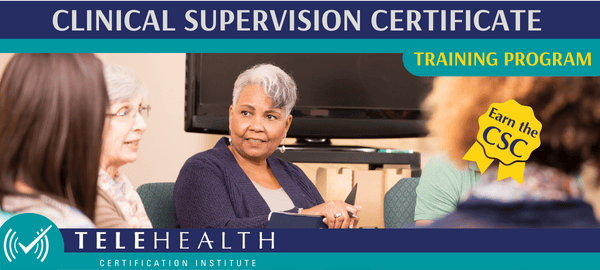
Earn Your Credential as a Clinical Supervisor
The Clinical Supervision Certificate Program is a comprehensive training program for active clinical supervisors or for those just beginning their supervision practice. This customized selection of expert-led courses offers up to 49 CEs (10.5 of which are Ethics).
This program is for behavioral health professionals wanting to provide clinical supervision to graduate students, interns, residents, those seeking licensure, and licensed clinicians. Credential holders include: counselors, social workers, MFTs, psychologists, addiction counselors, and other behavioral health professionals.
Enrollment in the Clinical Supervision Certificate Training Program offers:
- Fifteen individual courses that offer a total of 49 CEs
- Instruction provided by seasoned Clinical Supervisors on a variety of topics
- The Clinical Supervision Certificate (CSC)
Enrollment in the full program is offered at a discount of more than 60% off the full price for each course.
The CSC can only be earned by those enrolled in the Clinical Supervision Certificate Training Program
Enrollment in the 15-course bundle is available for a savings of $802
Earning a certification, credential, or certificate in a specialty validates your knowledge and expertise and demonstrates your commitment to providing high-quality, evidence-based treatment. Upon completing the full training program, you'll receive your Clinical Supervision Certificate (CSC) to be added to your professional credentials.
The following courses are included in the Clinical Supervision Certificate Training Program (Click on each image for course-specific details)
5.5 CEs
Many of us are, or were, clinicians, looking to support others and find ourselves in the practice of supervision. Although the relationship is similar to that between us and clients; it is also different. We need to understand those differences while also leveraging clinical skills, to build a relationship with supervisees so they feel safe to grow and develop the necessary skills and competencies needed for independent practice and client care. This workshop provides a deeper, yet practical discussion of the relationship from its value and importance, to how to build this important collaboration, understanding power, influence and authority, identifying complex processes, and managing resistance and conflict. This workshop is for supervisors or those considering becoming supervisors.
Upon completion of this training, professionals will be able to do the following:
- Discuss the importance of a supervisory relationship and measuring its effectiveness
- Share key aspects/traits for building a collaborative relationship
- Explain the importance of power in the relationship and how to use it appropriately and effectively
- Describe ways to prevent or resolve conflict and resistance
#3 = Supervisory relationship issues
5.5 CEs
Supervision is a multifaceted process. It should be done with intention and preparation in acquiring sufficient knowledge and skills to advance our supervisees and benefit all involved, including clients. This workshop will provide practical guidance and review of numerous methods of supervision to assist clinicians in their complex work as supervisors. For supervisors and those considering the practice of supervision.
This workshop will also discuss specific topics such as the importance of a model of supervision; utilizing processes such as self-awareness & reflection, transference/ countertransference, parallel process; increasing supervisee cultural competence; monitoring (methods and what to recognize) and providing feedback, evaluations, and remediation to supervisees; managing supervisee deficiencies and anxiety.
Upon completion of this training, professionals will be able to do the following:
- Explain the importance of having a model of supervision
- List several methods of supervision
- List two ways for building supervisee cultural competence
- Illustrate methods of monitoring, providing feedback, and evaluations
- Discuss suggestions for managing supervisee concerns, deficiencies and anxiety
#4 = Methods and techniques for clinical supervision
5.5 Ethics CEs
Supervisors have responsibilities not only for client welfare and monitoring supervisee performance and professional development (ACA Code of Ethics, F.1.a) but in our own practice of supervision. Others rely on us for guidance and direction. Keeping up with what is ethically relevant and how to understand and apply that knowledge is monumental to our effectiveness and success as clinical supervisors. This training provides a combined overview of several relevant ethical codes and best practices related to clinical supervision to increase supervisor clarity and knowledge for better ethical practice. Areas such as supervisor preparation, competence, and self-monitoring; the supervision relationship (e.g., boundaries, cultural awareness); and ensuring supervisees have a supervised experience (e.g., points of supervisee preparation and monitoring) will be discussed. It will also briefly review common, general liability concerns and suggestions for managing those concerns.
Upon completion of this training, professionals will be able to do the following:
- Name ethical areas of supervisor competence, knowledge, and practice
- Identify key ethics of the supervisory relationship
- Discuss the ethical aspects of gatekeeping and monitoring supervisee development and competence
- Describe common examples of liability concerns and a suggestion for managing
#9 = Legal and ethical issues and responsibilities in clinical supervision
6 CEs
Most clinicians think about individual supervision when thinking of clinical supervision. However, much supervision also occurs in a group format, including university training programs and agency settings. Research has shown that group supervision appears to be equally effective to individual supervision in terms of training outcomes. In this course, new and experienced supervisors will learn more about the advantages and limitations of group supervision, the models and stages of group supervision, and some specific group supervision techniques that can be used in live or virtual settings.
Participants in this course should expect to leave with a solid understanding of the advantages and challenges of providing clinical supervision in a group setting. They will review the stages of groups and the core group processes that occur within clinical supervision groups. Presenters will provide an understanding of the importance of addressing power and culture within group supervision. Finally, participants will learn various tools, techniques, and models for group supervision.
Upon completion of this training, professionals will be able to do the following:
- Discuss the stages of group and core group processes and how these apply to clinical supervision in groups.
- Analyze the power dynamics and cultural considerations that are present in clinical supervision in groups.
- Identify specific models and techniques that can be used in clinical supervision in groups.
- Develop skills to balance the needs of individual supervisees with the needs of the supervision group.
#5 = Group supervision
6 CEs
This course is for professionals considering providing counseling clinical supervision and those who have been practicing as a clinical supervisor who wish to enrich and refresh their supervisory knowledge. The professional development involved in being an effective supervisor is similar to the process of developing as a counselor. It is essential for supervisors to have a clear understanding of various supervision models in order to be confident in how they conduct supervision by actively choosing which model(s) to utilize in order to best serve the professional development of supervisees. Just as it is essential in clinical work with clients to have a clear understanding of theoretical orientation, in supervision it is equally important for supervisors to have a firm foundation as to which supervision models they are operating from and why.
This course provides a deep dive into clinical supervision theories and models in ways supervisors can best meet the needs of supervisees and align their supervision services with supervisors’ chosen clinical theoretical orientation(s). Participants will be provided an opportunity to apply what is learned during the course about various models to fictional supervision scenarios.
Upon completion of this training, professionals will be able to do the following:
- Name 5 categories of supervision models
- List and describe a minimum of 5 supervision models
- Differentiate and define first wave supervision models and second wave supervision models
- Describe the benefits of combining more than one supervision model
- Select and apply supervision models to match case scenarios about fictional supervisees.
- Describe why it is important for supervisors to be well versed and discerning as to what supervision models they use.
#2 = Theoretical frameworks and models of clinical supervision
6 CEs
Oftentimes supervision is a role we are placed in because of our job duties and/or because we think this is the next step toward success in our career path. A good clinician does not necessarily mean a skilled supervisor. Supervision is a distinct area of practice that requires preparation, knowledge, and competence, and involves new skills, responsibilities, roles, and procedures. This course provides a foundational understanding of supervision through the discussion of those requirements and practical suggestions for initial structure, process, and the supervisory relationship.
Upon completion of this training, professionals will be able to do the following:
- Define supervision as a distinct area of practice
- Explain the general goal of supervision, the necessary supervisor knowledge, skill, or competency, and describe the supervisor's role or function and the administrative responsibilities
- Identify the considerations for the structure of supervision
- Express the key elements of the supervisory relationship and the importance of the supervisory relationship
#1 = Roles and functions of clinical supervisors
1.5 CEs
The purpose of this course is to provide insights into counselor and supervisor development. It will explain the “zone of proximal development,” and how it can be applied to understanding the development of counseling supervisors, in addition to beginning and middle stage counselors. It will explore how development changes for counselors during their internship to their post graduate work toward licensure. This course will also address the necessary adjustments for clinical supervisors along that development process.
Upon completion of this training, professionals will be able to do the following:
- Explain the impact that the zone of proximal development has on the skill set of clinical supervisors and counselors.
- Describe how the zone of proximal development can be utilized to better understand the relationships between the supervisor and supervisee.
#6 = Evaluation, remediation, and gatekeeping in supervision.
2 Ethics CEs
A major component of the supervisor is helping therapists navigate ethical pitfalls and dilemmas faced in practice. Mental and behavioral health are among the few professions practiced in private with vulnerable individuals. Because of this, therapists must be held to high standards and be deemed competent before being allowed to practice independently. The responsibility for ensuring therapists’ competence and ability to make ethical decisions rests with educators and supervisors through gatekeeping.
In addition to the supervisory relationship and teaching components of supervision, the supervisor must also be aware of some of the common ethical violations clinicians face to adequately support therapists, protect themselves and advocate for the profession.
Upon completion of this training, professionals will be able to do the following:
- Explore and examine the common ethical complaints therapists face in clinical practice
- Examine the supervisor's role as a gatekeeper
- Demonstrate how to use the ethical decision making in clinical supervision
#6 = Evaluation, remediation, and gatekeeping in supervision
1 CE
Protect yourself, your supervisees, and clients by understanding the legal, ethical, and technical competencies of supervising clinicians who use technology in providing behavioral health services. The use of technology is not so evident. This course addresses how to evaluate supervisees’ readiness to provide telemental health services and incorporates a supervision related case study and consultation.
Topics covered:
- Ethical codes and guidelines
- How to evaluate a supervisees’ readiness to provide telemental health
- A supervisor’s case study
This course includes video instruction, downloadable slides and a downloadable checklist, the "Evaluation for a Supervisee’s TeleMental Health Services."
Upon completion of this training, professionals will be able to do the following:
- Explain the Supervisor’s ethical and legal responsibility to evaluate a supervisee's readiness to provide telemental health service.
- Describe the process of evaluating a supervisee's readiness to provide telemental health service.
- Apply a supervisee telemental health preparedness checklist when evaluating a supervisee’s readiness.
#7 = Utilization of technology in clinical supervision
3 CEs
A discussion about telesupervision that includes lessons learned from internship to postgraduate clinical supervision. The training focuses on the unique opportunities and challenges inherent in the process of generating, building and co-creating the supervisory relationship with supervisees at a distance. A special focus includes the tasks of the working alliance between supervisors and supervisees and how it can be addressed in telesupervision. Because supervisors are at different stage of both supervisory development and telehealth development, we also include special considerations for beginning and advanced supervisors as it relates to their unique needs related to telesupervision.The training addresses techniques and methods related to individual and group telesupervision and how the supervisor can use technology to manage the needs of multiple supervisees.
Upon completion of this training, professionals will be able to do the following:
- Address, enhance, and identify beginning supervisors and advanced supervisors concerns about telesupervision.
- Address special considerations for the individual needs of supervisees in group supervision, assess how group telesupervision can accelerate supervisees’ learning and ways to decrease barriers to telesupervision.
- Explore the developmental needs of supervisees and increase the supervisee’s commitment to the working alliance within the structured environment needed in telesupervision.
#7 = Utilization of technology in clinical supervision
1.5 CEs
Documentation is often overlooked in supervision because we dread it. It is frustrating and time consuming to translate the great work we do (talking, connecting, and sharing) into written form, after it has occurred, both clinically and in supervision. As supervisors, we are responsible for every aspect of clinical service our supervisees provide. Documentation is an important way to monitor their work with clients and help ensure quality care, competence, compliance with guidelines and timely payment. With practical tips and reminders, this course will provide discussion of the importance of documentation, suggestions for enhanced content, and what to document for supervision itself to simplify the documentation process.
Upon completion of this training, professionals will be able to do the following:
- Describe the value of documentation in supporting our work in monitoring professional services.
- Identify several tips for enhanced, best practice content.
- Define key components of maintaining a supervisee file and suggestions for quality supervision notes.
#8 = Administrative procedures and responsibilities related to clinical supervision
1 CE
This presentation provides an overview of the process of providing supervision within your organization. Benefits and barriers are reviewed and the difference between administrative and clinical supervision are discussed. Participants learn to conduct effective telesupervision and review supervisory roles and documentation processes.
Upon completion of this training, professionals will be able to do the following:
- Describe the difference between administrative versus clinical supervision
- Conduct effective supervision via teleservices
- Document processes for supervision
#8 = Administrative procedures and responsibilities related to clinical supervision
1.5 CEs
How can one maintain compliance and uphold standards in clinical supervision and counseling? Utilizing paperwork as a tool is one approach. Similarly to the therapeutic relationship, contracts should be reviewed and discussed to support compliance and meeting of standards in clinical supervision. Contracts provide time for the professional to review and discuss expectations, review limits and scope of work, and makes the professional relationship official with start dates and more.
In this course, you will learn how your clinical supervision disclosure statement/contract can support compliance and maintain standards in supervision/counseling. We will review obligations and functions of a clinical supervisor to highlight the basic understanding of what clinical supervision is, including the need to have a disclosure statement for supervises. In addition, we will discuss the elements of a disclosure statement and how your contract can support identify development of the clinical supervisor while supporting the ability to maintain standards. Get ready to review and create your contact to support your clarity, competence, and confidence as a clinical supervisor.
Upon completion of this training, professionals will be able to do the following:
- Explain the obligations & functions of a clinical supervisor
- Explain the purpose of contracts in our profession
- Describe disclosure statement and contract elements
#8 = Administrative procedures and responsibilities related to clinical supervision
1.5 Ethics CEs
As the counseling field has working to address historical issues of inequities, discrimination, and marginalization, it is imperative to continue the exploration of counselor development and its impact. Counselor identity development is crucial to the work of counselors, as it informs counselors' work with their clients (Moss et al., 2014).
Moreover, supervision is a critical component of counselor development. Currently, the ACES Best Practices in Clinical Supervision (ACES, 2011) details how supervisors should approach supervision with counselors. While the document does address diversity and multicultural issues, it is limiting on how to effectively work with counselors given recent compounded issues such as the pandemic and social injustices. The focus of this presentation is to focus on how to utilize a social justice lens in supervision to aid in counselor development.
Upon completion of this training, professionals will be able to do the following:
Identify at least one social justice model that they can implement in supervision.
Discuss ways in which to assess counselor development.
#10 = Culturally responsive clinical supervision
1.5 Ethics CEs
This presentation will focus on power dynamics in supervision, particularly around race and how it impacts the supervisor-supervisee relationship. Although other identities will be discussed (i.e., gender), due to the sociopolitical climate, increased attention to racial dynamics and racial trauma, and an increase in visible diversity in counseling programs as well as clients seeking services, it is important to develop competence in this area. Common mistakes in addressing race in supervision will be discussed as well as effective strategies to navigate cross-cultural dynamics.
Upon completion of this training, professionals will be able to do the following:
Examine power dynamics in the supervisory relationship
Identify errors in cross-cultural supervision
Describe strategies to address culture in supervision
#3 = Supervisory relationship issues.
#10 = Culturally responsive clinical supervision
Instructors for courses included in the Clinical Supervision Certificate Training Program:
Raymond Barrett, CEO, LMHC, LPC
Ruby L. Blow, MA, LPC, NCC, BCC, CPCS, ACS, BC-TMH
Candice Crawford, PhD, LMHC
Kristin Ryan Easley, M.S., L.P.C., NCC
Dr. Malcolm Horn, PhD, LCSW, LAC, SAP, MAC
Latasha Matthews, LPC, CPCS, CPLC, CAMS
Francisca Mix, MA, LPC, BC-DMT, ACS
49 CEs available when completing all fifteen courses
Counselors: Telehealth Certification Institute, LLC has been approved by NBCC as an Approved Continuing Education Provider, ACEP No, 6693. Programs that do not qualify for NBCC credit are clearly identified. Telehealth Certification Institute, LLC is solely responsible for all aspects of the programs.
Telehealth Certification Institute, LLC is recognized by the New York State Education Department's State Board for Mental Health Practitioners as an approved provider of continuing education for licensed mental health counselors. #MHC-0048. Approval renewal date: 1/31/2026
Marriage and Family Therapists: Many MFT licensing boards accept our courses or one of the approvals which we have from professional associations. You can check with your board to determine if this course would be accepted by your licensing board.
Social Workers: Telehealth Certification Institute, LLC, #1609, is approved as a provider for social work continuing education by the Association of Social Work Boards (ASWB) www.aswb.org, through the Approved Continuing Education (ACE) program. Telehealth Certification Institute, LLC maintains responsibility for the program. ASWB Approval Period: 05/02/2021 – 05/02/2024. Social workers should contact their regulatory board to determine course approval for continuing education credits. Socials workers will receive 10.5 ethics continuing education credits and 38.5 clinical continuing education clock hours when completing all fifteen courses.
Telehealth Certification Institute, LLC is recognized by the New York State Education Department's State Board for Social Work as an approved provider of continuing education for licensed social workers #SW-0435. Approval renewal date: 2/28/2026
Addiction Professionals: Telehealth Certification Institute is an approved provider of continuing education by NAADAC, The Association for Addiction Professionals, provider #193104. Full attendance is required; no partial credit will be awarded for partial attendance.
Please refer to each CE details for each course regarding Addiction Professional approval.
Psychologists: Telehealth Certification Institute LLC is approved by the American Psychological Association to sponsor continuing education for psychologists. Telehealth Certification Institute LLC maintains responsibility for this program and its content.
Telehealth Certification Institute, LLC is recognized by the New York State Education Department’s State Board for Psychology as an approved provider of continuing education for licensed psychologists #PSY-0128. Effective 8/31/2021 – 8/31/2024
Art Therapists: Telehealth Certification Institute, LLC is recognized by the New York State Education Department's State Board for Mental Health Practitioners as an approved provider of continuing education for licensed creative arts therapists #CAT-0093. 7/21/2021 – 7/31/2024
Other Professionals: These courses qualify for up to 2940 minutes of instructional content as required by many national, state and local licensing boards and professional organizations. Retain your certificate of completion and contact your board or organization for specific filing requirements.
Dr. Rosalind Polk-Hall, EdD, LPC, CPCS
Mary Kate Reese, PhD, LPC, CPCS
Ebony White, PhD, LPC, NCC, ACS
Lynn Louise Wonders, LPC, CPCS, RPT-S
Counselors seeking CCE's ACS credential meet the ACS training requirements by completing this training program.
Telehealth Certification Institute LLC is a Center for Credentialing & Education (CCE) Registered 1005-ACS training provider.
This program is approved as an ACS training program.



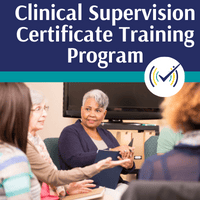
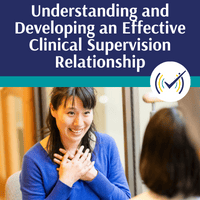
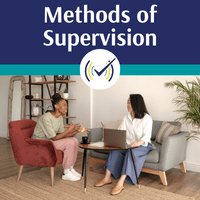


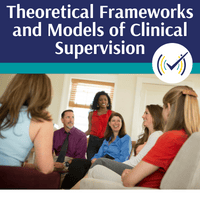
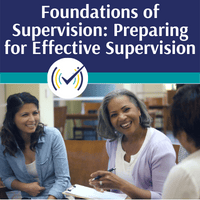


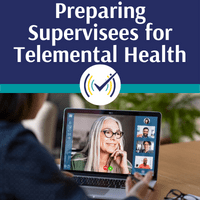




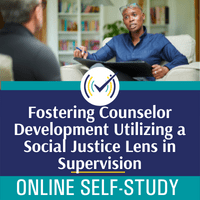


The course was so informative and I was glued to my screen for the entire duration. I received so much knowledge concerning ethics in telehealth and I am greatly encouraged to read about all the standards and policies that pertain to my practice. Thank you!.